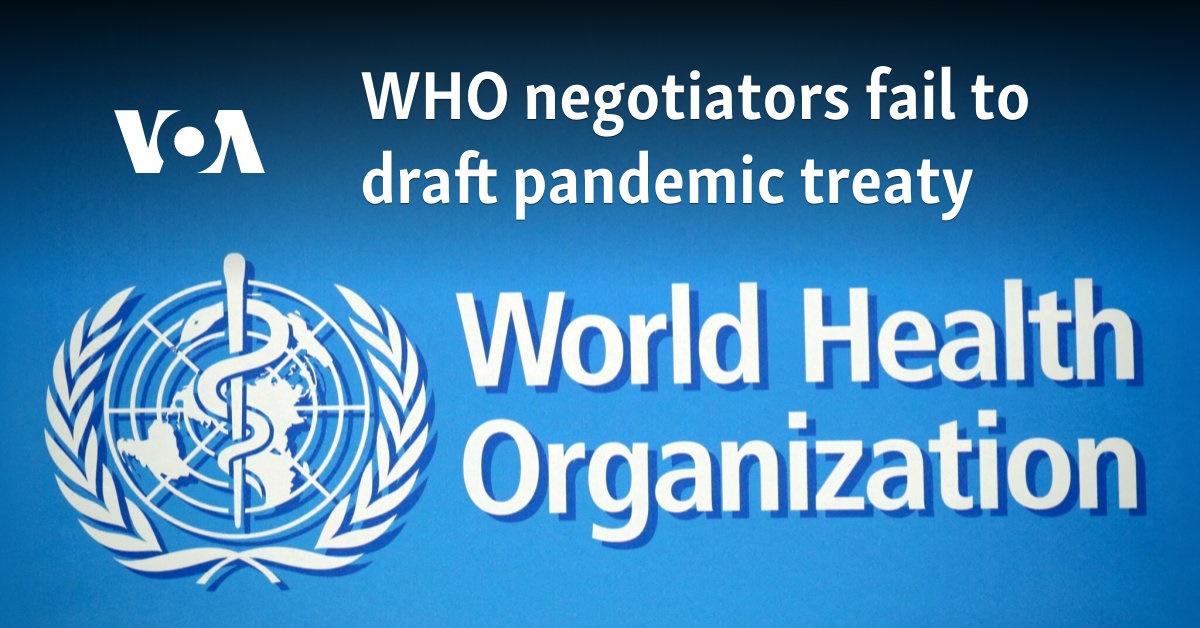Two years of negotiations ended Friday without a final draft of a global agreement on how to best handle the next pandemic that public health officials say is sure to come.
After the COVID-19 pandemic, the World Health Organization was asked to write an agreement on how to respond to the inevitable next one and avoid the missteps and disparities of the last one.
“We are not where we hoped we would be when we started this process,” Roland Driece, co-chair of WHO’s negotiating board for the agreement, said Friday.
A final draft treaty was scheduled for presentation at next week’s World Health Assembly, the yearly meeting of health ministers in Geneva.
“This is not a failure,” WHO chief Tedros Adhanom Ghebreyesus said in Geneva after the talks ended.
“We will try everything — believing that anything is possible — and make this happen because the world still needs a pandemic treaty,” he said.
The COVID-19 pandemic killed millions of people worldwide, broke health care systems and disrupted economies.
Tedros described the immense disparity between rich and poor countries concerning access to vaccines and other necessities “a catastrophic moral failure.”
The WHO chief is, however, keeping hope alive that WHO will come up with a plan to more equitably address the next pandemic.
“Many of the challenges that caused a serious impact during COVID –19 still exist,” he said.
Driece and Precious Matsoso, the co-chairs of the negotiating board, didn’t get into details about where the talks were stymied. But others pointed to differences about sharing information about pathogens, intellectual property rights and affordability of vaccines.
According to reporting by The Associated Press, developing countries worried about providing virus samples to be used in developing vaccines, but then not being able to afford those vaccines.
Some U.S. Republican senators protested to the Biden administration that the draft treaty contained “intellectual property rights” issues. And Britain said it would agree to the treaty only if “adhered to British national interest and sovereignty,” the AP reported.
Jaume Vida, a senior policy adviser with Health Action International told AFP that the negotiators will likely present “the skeleton of the instrument to the assembly,” because “there is agreement on the principles and structure.”
Agence France-Presse said it saw a draft agreement of which a large portion was approved, but there were a number of other sections that had not been approved.
“Perhaps the ambition of doing this in two years was a bridge too far, the fastest-ever negotiated U.N. treaty, Ellen ‘t Hoen, a lawyer with the Medicines Law and Policy NGO, told the French news agency.
Some information in this came from The Associated Press and Agence France-Presse.

